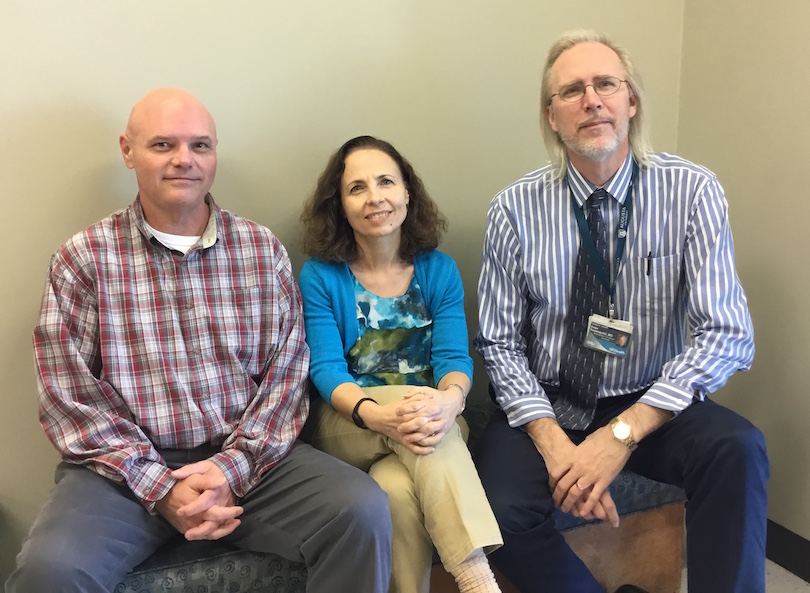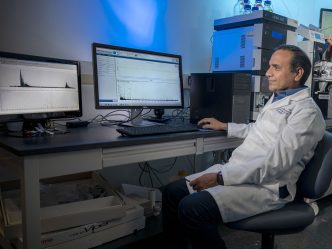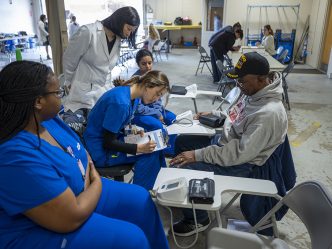AUGUSTA, Ga. – Anxiety disorders are estimated to affect approximately 30 percent of people in the United States. Despite this prevalence, access to care can be a challenge. Many to seek help from their primary care provider rather than a mental health specialist, with as many as 60 percent of all psychiatric drugs being prescribed by primary care providers.
Faculty at Augusta University are working to ensure students have the necessary training to help combat the challenge of access to mental health care. Dr. Darrell Thompson, primary care director and associate professor at the College of Nursing, was awarded $1.6 million by the Health Resources and Services Administration that will support the Behavioral Health Workforce Education and Training Program.
The BHWET Program will allow trainees to gain clinical experience in providing behavioral health care in primary care settings that serve rural and medically underserved populations. Training through the BHWET Program will be available to psychiatric-mental health doctor of nursing practice (DNP) students, psychiatric residents and masters-level counseling psychology students.
Implementing behavioral health care into primary care settings will allow more people access to this type of care. – Dr. Darrell Thompson
“This grant will allow a total access approach to behavioral health care and will help all trainees to work interprofessionally and to practice in a way that is tailored to rural, medically underserved and vulnerable populations,” Thompson said. “Implementing behavioral health care into primary care settings will allow more people access to this type of care, which may have had difficulty prior.”
To develop and implement the program, Thompson and his colleagues at the CON are collaborating with Dr. Peter Rosenquist, professor and vice chair in the Department of Psychiatry and Health Behavior and Dr. Sabina Widner, assistant chair and professor in the Department of Psychological Sciences.
“The HRSA grant offers a unique opportunity for Augusta University to develop the infrastructure and workforce needed to implement a significant innovation with the potential to address health disparities,” Rosenquist said. “The collaborative care model is a systematic approach to the treatment of mental disorders in primary care settings by creating an integrated team of care managers, psychiatrists and primary care physicians. The collaborative team is better able to screen for and proactively manage mental disorders as chronic diseases.”
The BHWET program will receive funding for four years. The first two years of the program will address anxiety disorder treatment, and the latter two will address mood disorder treatment. This program will also implement telemedicine training and practice.
The efforts of the BWET Program represent a step forward in training the next generation of primary care providers in mental health care. “Good health care includes mental health screening and opportunities for treatment,” Widner said. “We know that anxiety and mood disorders are among the most commonly diagnosed disorders in the country and targeting these concerns in a primary care environment is important.”
 Augusta University
Augusta University





